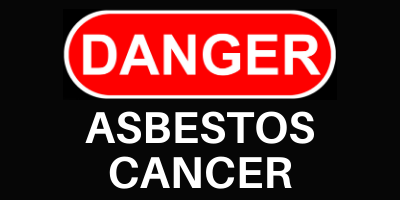Signs and Symptoms of Mesothelioma
What is Mesothelioma?
Mesothelioma is a type of cancer occurring in the thin tissue layers that cover most of your internal organs (mesothelium). Mesothelioma most frequently affects the tissue that surrounds the lungs (pleura). This type is called pleural mesothelioma. Rarer types of mesothelioma occur in tissue in the abdomen (peritoneal mesothelioma), around the heart, and the testicles. Mesothelioma is aggressive and a fatal form of cancer caused by asbestos exposure.
How Does Asbestos Cause Mesothelioma?
Asbestos is a naturally formed mineral found in the earth. Asbestos fibers are thin but strong and resistant to heat, making them useful in various applications, such as insulation, shingles, flooring, and brakes.
When asbestos is broken, such as during the mining process or removing asbestos insulation, dust may be created. If the asbestos dust is inhaled or ingested, asbestos fibers will embed in the lining of the lungs or the stomach, where they can cause irritation that may lead to mesothelioma.
Signs of Mesothelioma
Mesothelioma may not appear for 20-50 years after the initial asbestos exposure. At that point, the disease has grown and spread. Mesothelioma is a rare disease with only 3,000 or so cases diagnosed each year. Comparatively, over 150,000 cases of lung cancer are diagnosed each year.
Many signs of mesothelioma are shared with many other conditions that are unrelated to cancer. Mesothelioma is often misdiagnosed as chronic bronchitis, influenza, or pneumonia in the early stages.
- Chest Pains
- Shortness of breath
- Persistent and Painful Coughing
- Loss of appetite
- Sudden weight loss
- Fatigue or exhaustion
- Abdominal pain
- Abdominal swelling
- Nausea
- Diarrhea
- Constipation
If you notice several signs and they persist for a while, you need to schedule an appointment with your doctor and request an X-ray. Be sure to tell them that you have worked with asbestos or were exposed to asbestos for extensive periods.
Later Stage Symptoms of Mesothelioma
As mesothelioma tumors grow, they begin to press against the chest wall or other body organs, and symptoms become more pronounced.
- Chest pain due to tumor pressing on the chest wall and its nerves.
- Difficulty breathing as tumors restrict lung expansion.
- Pleural fluid builds up as tumors spread into the pleural lining and lymph nodes of the chest and prevent fluid from draining out of the pleural cavity.
- Coughing up blood (hemoptysis)
- Difficulty swallowing (dysphagia)
- Hoarseness or throat damage
- Nerve issues
These are symptoms of advanced mesothelioma. If you are not already under a doctor’s care, you should find a mesothelioma specialist right away.
How is Mesothelioma Diagnosed?
If mesothelioma symptoms are present in a patient, a doctor should conduct a physical exam, check for abnormal conditions, and refer the patient to an oncologist for mesothelioma testing. Mesothelioma tests include various imaging scans, such as chest X-rays and CT scans, blood tests, and a biopsy.
Mesothelioma treatments are available. With excellent symptom control and the best medicines, many people live longer than mesothelioma statistics predict. For most people with mesothelioma, a cure isn’t possible.
Mesothelioma Compensation
Concerns about health risks associated with asbestos use began in the early 20th century. Before studies in the 1920s and 1930s confirmed the health risks, company executives knew the dangers and kept them from the public.
Victims of asbestos exposure are entitled to mesothelioma compensation from asbestos trust funds or directly from the company responsible for your exposure. Nothing can reverse your disease, but you and your family can be compensated for lost wages, high medical bills, and pain and suffering.
At Goldberg Persky and White P.C., we can advise you of your legal options, explain what you are entitled to receive, help you gather evidence for your case, and fight for your rights. Contact us today for a free consultation.
Article first appeared on www.gpwlaw.com/news.
